[btnsx id=”1919″]
[btnsx id=”1460″]
[btnsx id=”1921″]
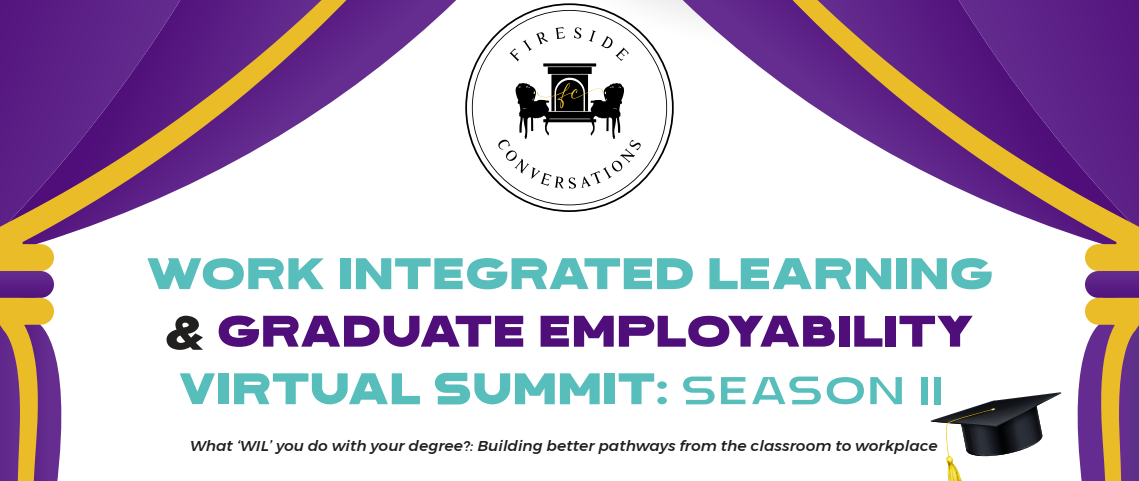
20+ GLOBAL SPEAKERS CONFIRMED
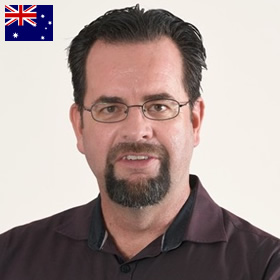
Prof Karsten Zegwaard

Gary Bolles

Stewart Samkange
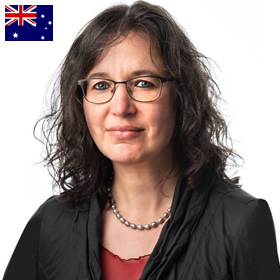
Dr Lea Campbell

Professor Helen Hughes

Dr Fiona Whitehouse

Prof Natasja Holtzhausen
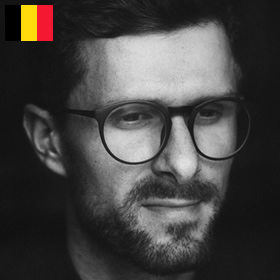
David Timis

Prof Lalini Reddy
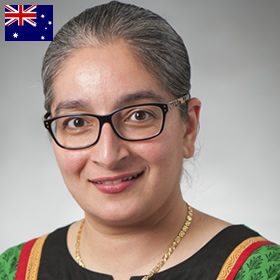
Dr Jasvir Kaur Nachatar Singh
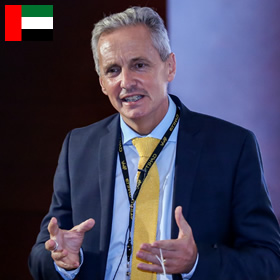
Andrew Stotter-Brooks
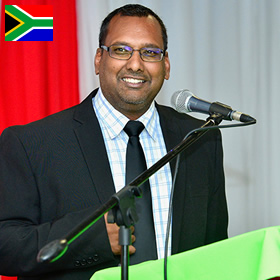
Prof Naven Chetty
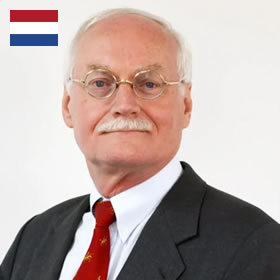
Professor Maurits van Rooijen
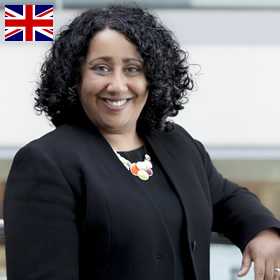
Dr Nalayini Thambar
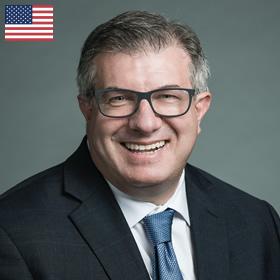
Dr Maurice Kugler
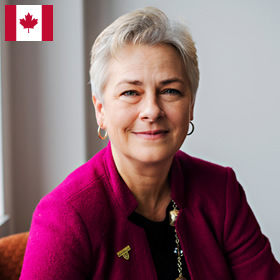
Dr Norah McRae

Prof Simon Riley

Gavin McCabe
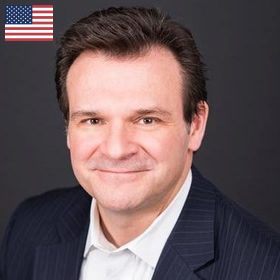
Harry Patrinos
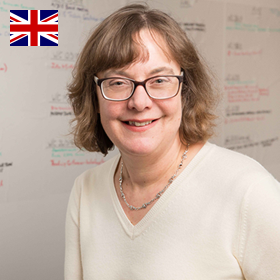
Elaine Boyes

Director: Work Integrated Learning Research – The University of Waikato, New Zealand
Prof Karsten Zegwaard
Karsten Zegwaardis Director of Work-Integrated Learning Research at the University of Waikato, New Zealand. Karsten is Editor-in-Chief for the International Journal of Work-Integrated Learning, co-editor of the International Handbook on Work-Integrated Learning, and president of Work-Integrated Learning NZ (WILNZ). Karsten has been the recipient of a number of international awards. Karsten has been involved with work-integrated learning since 1998 and has been closely involved in the university-wide role out of compulsory WIL for all undergraduate degrees. Karsten’s research focus has been around skill development and learning through WIL, professional identity development, good practice, and WIL staff professional development needs.

The Next Rules of Work", and Chair for the Future of Work - Singularity University, USA
Gary Bolles
Gary is an internationally-recognized expert on understanding and managing disruption. He is Chair for the Future of Work for Singularity University and partner in the boutique consulting agency Charrette LLC, positions in which he shares his knowledge and expertise on disruption to help business and society manage change. His focus is on strategies for helping individuals, organizations, communities and countries to thrive in the transition to a digital economy.
As a speaker, Gary A. Bolles presents extensively on topics such as the future of work, education and learning, and how AI is transforming our world. Understanding the constant changes that society and markets undergo, Bolles promotes creating a culture of innovation and gives career strategies for tomorrow’s skills. Moreover, he addresses questions regarding leadership in change and the impact of business in the new digital economy. His experiences make him a valuable and noteworthy speaker, as his presentations provide great insight on change, future, and innovation.
As Chair for the Future of Work, he leads Singularity University’s efforts to enable an abundant future of work and learning through the empowerment of the global community. In the midst of the deep digital transition we are experiencing, Bolles believes it is needed to develop a shared understanding of the dynamics of disruptive change and establish effective strategies, as well as to ensure that everyone has access to meaningful work and lifelong learning opportunities. He has been involved in strategic innovation projects with clients such as Intel, Yahoo, Nokia, Google, Silicon Valley Bank, London Business School, and the United Nations.

Graduate Activation Programme Lead: Africa, Central & Eastern Europe – LinkedIn, Ireland
Stewart Samkange
Stewart’s mission, passion and purpose is helping young African higher education students get access to economic opportunities like jobs, by working at scale with leading African Universities & Governments. From his base in Ireland, he leads the Graduate Activation Program (GAP), an initiative by LinkedIn Team Africa to create a systematic program to teach students, graduating classes, young professionals and alumni how to craft strategies for finding jobs during challenging economic times.
He works closely with University/Student Career & Alumni Services professionals to assist young African professionals to get hired – Helping students discover how to create a career strategy, cultivate resilience, explore career options, update their resumes, network virtually, and improve their job searches and interview skills.
For students, this program provides resources to let them know the benefits of LinkedIn profiles and presence, and to help them get started with the following – 1) Building a student profile, 2) Finding a Job or internship, 3) Networking on LinkedIn, 4) Tailoring profiles to particular goals, 5) Communicating on LinkedIn, 6) Finding jobs in Africa and 7) Building personal professional brands.
For Universities & Higher Education Institutions in Africa the programme enables them to build online school brands on the world’s largest professional network. Key benefits are: 1) Conducting profile reviews with students, 2) Using the alumni tool with students, 3) Running effective & valuable LinkedIn groups 4) Creating university pages & the alumni plug in and 5) Provide in demand skills-based learning courses to help students start their journey on LinkedIn.

Co-Chair of the Network for Experiential Learning – The University of Melbourne, Australia
Dr Lea Campbell
Dr Lea Campbell is engaged in research on teaching and learning, especially in the area of work integrated learning (WIL) at The University of Melbourne where she leads the university-wide WIL network. She was also the founding President of a community language school and co-founded Our Children, Our Schools (OCOS), a public education alliance consisting of 34 groups across Victoria all working towards high equity and high quality public education and its planned provision. She also coordinates the Victorian Parliamentary Internship Program on behalf of the School of Social and Political Sciences since 2011 jointly with Assoc Prof Paul Strangio from Monash University. It is the inaugural Parliamentary internship program of Australia, founded in 1990. Its most prominent alumnus is Premier Dan Andrews.

Year in Industry Faculty Lead, and Workplace Relationships Expert – University of Leeds, UK
Professor Helen Hughes
Helen Hughes is a Chartered Occupational Psychologist, and Associate Professor at Leeds University Business School. She specialises in the social dynamics of workplace relationships, as well as graduate employability and early career transitions to the workplace. She is passionate about translating high quality research into usable insights and strategies, working with partners such as Rolls-Royce, Jaguar-Land-Rover, The National Health Service, Leeds City Council, Atkins, and KPMG. Currently, she is an Investigator on the ESRC-funded project: “Adapting Offices for the Future of Work” project. Her research has been published in international journals and edited books, and has been featured by media outlets including the BBC, Forbes, the Financial Times, and the Telegraph, as well as radio and podcasts.

Head of the Internship Office – University of Oxford
Dr Fiona Whitehouse
As Head of the Internship Office at the University of Oxford, Fiona leads on internships strategy, forges new global internship partnerships, runs workshops and seminars for groups of undergraduate and post graduate students and shares best practice with other universities. She also coaches students one-to-one with internship advice (her focus is primarily helping low-income students find relevant work experience).
As an undergraduate Fiona studied Fine Art and Italian at Exeter University and completed a Master in History of Art and Aesthetics at Oxford. Fiona also holds a Doctorate in 15th Century Painting Techniques. Previous to working at the University of Oxford Fiona worked in the High-Tech Sector in the US and the UK.

Director: Centre for the Future of Work – University of Pretoria, South Africa
Prof Natasja Holtzhausen
Natasja holds a BA Degree in Political Science, a BA (Hons) in Public Administration and a MA in Public Administration from the University of Pretoria. She completed her D Litt et Phil at the University of South Africa (Unisa) focusing on whistle blower protection and completed a Post-Graduate Certificate in Higher Education at the University of Pretoria.
She is an external examiner for a vast number of HEIs and supervises Masters and Doctoral students. She is currently the coordinator of the SPMA Phd/D Admin programme and serves on the Teaching and Learning Committee of the EMS Faculty. She enjoys curricular community engagement and is actively involved in a number of community engagement projects and enjoys especially interacting, engaging and serving in communities. Natasja is regularly invited as a guest speaker on aspects relating to corruption, whistle blower protection, work integrated and service learning. She is frequently invited to share her supervisory experiences at the NRF SA PhD Conferences. She has been involved in a number of non-curricular community engagement projects of which 4 were published and currently acts as the project coordinator on a programme that focus on road safety. Prof Holtzhausen has served on the executive of two professional associations, most notably as the first female chairperson of the Association of Schools and Departments of Public Administration and Management (ASSADPAM). She was also the chief editor of the accredited journal Administratio Publica and strives to empower emerging researchers. She is the recipient of numerous awards for exceptional excellence and achievement Her research interests include ethics, corruption, whistle blower protection, curricular community engagement, graduateness and education in Public Administration. Her passion is to empower others and to create experiences that matters. Prof Holtzhausen has read various papers at national and international conferences of which several lead to scientific publications.

Global Communications Manager – Generation, Belgium
David Timis
David is the Global Communications Manager of Generation, the largest global employment program by annual volume that both trains and places people into life-changing careers that would otherwise be inaccessible. His mission in life is to prepare people for the future of work and his interests lie at the intersection of education, employment, and technology. David was educated in Business and Management at the University of Glasgow and in European Political and Governance Studies at the College of Europe. He has 8 years of work experience in marketing, communications, and public affairs in organisations such as Google, BCW, L’Oréal, and Mars Inc.
David has guest lectured at renowned universities such as Cambridge University and the College of Europe, and delivered keynote speeches about the impact of technology on the future of work for a wide range of clients including TEDx, Google, and the European Commission. He has been recognised as an Influential Leader by the Association to Advance Collegiate Schools of Business, included on the Forbes 30 Under 30 List for his work to equip young people with digital skills, and selected by the World Economic Forum to be part of the Davos Lab. For more information about David’s work, please visit his personal website: http://davidtimis.com/.

Director: Centre for Community Engagement & Work Integrated Learning – Cape Peninsula University of Technology, South Africa
Prof Lalini Reddy

Award-winning researcher: Department of Management & Marketing – La Trobe University, Australia
Dr Jasvir Kaur Nachatar Singh
Dr. Jasvir Kaur Nachatar Singh is an award-winning Senior Lecturer at the Department of Management, Sport and Tourism, La Trobe Business School, La Trobe University, Australia. In 2020, Dr. Singh received an international teaching recognition from Advance HE, UK as a Fellow (FHEA). In 2018, Dr. Singh received two La Trobe University Teaching Awards and Best Presenter Award at the Global Higher Education Forum, Malaysia. Dr. Singh’s research expertise is in higher education with a particular interest in exploring international students’ lived experiences of academic success, employability, career aspirations, and learning experiences in a blended learning environment. Dr. Singh also explores lived experiences of international academics with leadership positions. Dr. Singh has published numerous articles in high-impact journals and has presented at various national and international higher education conferences.

Vice-President of Learning & Development – Etihad Aviation Group, UAE
Andrew Stotter-Brooks
An experienced, innovative and award winning learning and development professional with a track record of organisational development, performance evaluation, employee growth and learning optimisation. As Vice President of Learning and Development for Etihad Airways, Andrew leads the creation of innovative, leading-edge learning solutions, to support the development, growth and performance of Etihad’s 24,500 global team members.
Andrew is recognised and trusted for the quality, enjoyment and depth of his delivery with experience within a variety of business sectors including commercial, finance, technological, design, hospitality, retail, travel, leisure and aviation.
On a personal level, Andrew is proud to deliver a skilled, insightful, creative and disruptive mix to the design and delivery of his strategic learning solutions. This proven approach ensures delegates are truly engaged, clearly recognising how learning will be implemented to effectively enhance their own personal development and business performance.

Dean of Teaching & Learning: College of Agriculture, Engineering and Science – University of Kwazulu-Natal, South Africa
Prof Naven Chetty

Chief Academic Officer of Global University Systems, Germany
Professor Maurits van Rooijen
Professor Maurits van Rooijen is Chief Academic Officer of Global University Systems as well as Rector of London School of Business & Finance and of GISMA (Germany). He has held senior management positions at various universities such as Leiden University, Erasmus University Rotterdam, Westminster University in London UK, Victoria University in Melbourne Australia. Previously he was Chief Executive and Rector Magnificus at Nyenrode University.
Prof van Rooijen is Co-Chairman of WACE (based at UMass Lowell, promoting work-integrated learning), Chairman of the High Council of garage Erasmus (based in Torino Italy, promoting talent mobility and transnational entrepreneurship in Europe), vice-president of EAN (London based, promoting widening participation for underrepresented groups in tertiary education), immediate past president of the Compostela Group of Universities (based in Santiago de Compostela, Spain).
Prof van Rooijen earned his doctorate in economic history and geography from Ultrecht University in 1981. In recognition of his innovative work and achievements in especially international education, in 2013 Professor van Rooijen received the Victor Meldrum prize for Leadership and Vision (EAIE) and in 2015 he received the Golden Insignia of the Universidad de Santiago de Compostela.

Director of Careers & Employability – University of Nottingham, UK
Dr Nalayini Thambar
Dr Nalayini Thambar is a Fellow of the Higher Education Academy and a qualified careers adviser whose career has included teaching, professional practice, and leadership across all areas of student employability. Her primary research interest is the professional identity of Higher Education Careers Professionals. At Nottingham in the UK, China, and Malaysia, Nalayini has led the development of expert services so that students and graduates develop their employability skills, consider global graduate careers and secure fulfilling roles. As AGCAS Quality Director she has led the establishment of a Quality Standard and a mapping of Professional Pathways for all UK HE Careers Professionals.

Professor of Public Policy – George Mason University, USA
Dr Maurice Kugler
Maurice D. Kugler’s research expertise is on the role of new technologies in boosting economic growth and labor productivity (aka endogenous growth theory). His work encompasses analyses of labor productivity growth, global labor markets, human capital formation, international migration, and international trade.Kugler was previously the head of research of the Human Development Report, the UN’s annual flagship publication on international economic development and also a senior economist at the World Bank.
His research has been widely published in top economics academic journals, including the American Economic Review, Economic Development and Cultural Change, Economics Letters, Journal of Development Economics, Journal of Human Resources, Journal of Public Economics, Review of Economic Dynamics, Review of Economics and Statistics, Review of Economic Studies, and the World Bank Economic Review. Before joining the faculty at Mason, Kugler’s other roles included full time teaching positions at Universidad de los Andes (Bogota, Colombia), University of Southampton (United Kingdom), Stanford University (Palo Alto, California), Harvard University (Cambridge, Massachusetts), Wilfrid Laurier University (Waterloo, Ontario), as well as principal investigator for the U.S. Department of Labor.

Associate Provost: Co-operative & Experiential Education – University of Waterloo, Canada
Dr Norah McRae
Norah McRae’s involvement in co-operative and work-integrated education spans more than twenty years, over which time she has led strategic program development and research on student engagement, community-engaged learning, and intercultural competency development. In 2020, she was awarded the Dean Herman Schneider Award from the Co-operative Education and Internship Association (CEIA). This award recognizes McRae for her significant record of contributions to the advancement of the philosophy and practice of co-operative education. In 2017, she was awarded the Donald McLaren Jr. Academic Award from the World Association for professional achievement in co-operative and work-integrated education. Her doctoral research examined conditions that enabled transformative learning during work-integrated education and led to the development of a preliminary theoretical model for learning during work-integrated education. She is a faculty member for the WACE Planning Institute for Global and Experiential Education and the WACE Assessment Institute. Norah has served as President of the Canadian Association for Co-operative Education and is an executive member of the World Association for Co-operative and Work-integrated Education Board of Directors.

Chair of Experiential Student Learning: The University of Edinburgh
Prof Simon Riley
Simon’s teaching interests lie in the pedagogy of Higher Education, exploring and developing student’s autonomy to co-create their own curriculum through experiential learning, establishing reflective learning skills, and using portfolios for learning.
So, in his practice, he is the academic lead for an institution-wide initiative called ‘Student-Led, Individually-Created Courses’ (SLICCs) , where students are given autonomy to co-create their own experiential learning course that bears academic credit. If you want to know more, here is a short blog summary (http://www.teaching-matters-blog.ed.ac.uk/student-led-individually-created-courses-sliccs-learning-and-teaching-beyond-disciplinary-silos/ ) and the SLICC information site (https://www.ed.ac.uk/sliccs/ ). In the undergraduate medicine programme, Simon is a lead for Student Selected Components (SSCs), where students choose specialties and projects, where they gain research skills, and insight into career options.

Careers & Employability Manager – University of Edinburgh Career Service Unit, Scotland
Gavin McCabe
Gavin is an experienced higher education manager, with particular interests in skills development, graduate attributes, reflection, employability, and experiential learning.
He is passionate about working with others to enable change that matters, whether through collaborating to create system-level enhancements and impact, or in one-to-one coaching to support individual growth, development, and meaning.
He is a deep believer in people, their potential, and the impact they can have on society at all levels. That drives a personal and professional curiosity and a desire to approach everything and everyone with a readiness to be surprised and delighted, and to find the potential.
Three main things get him out of bed in the morning: acting in service of meaningful and positive change; working with like-minded people to develop solutions to complex problems; and empowering individuals to develop, grow, and be their best selves.

Economics of Education Expert– The World Bank, USA
Harry Patrinos
Harry Anthony Patrinos is an economist, manager and adviser in the Europe and Central Asia region of the World Bank. He specializes in the economics of education, especially labor market outcomes, school-based management, demand-side financing and public-private partnerships. He managed the education practice in Europe and Central Asia, East Asia and the Pacific, the Middle East and North Africa, and the Global Unit. He managed lending operations and analytical work programs in Latin America. He co-developed the Harmonized Learning Outcomes database as part of the Human Capital Index. He has worked extensively on the socioeconomic status of Indigenous Peoples, and has co-authored two books on this issue, Indigenous Peoples, Poverty and Human Development in Latin America (Palgrave) and Indigenous Peoples, Poverty, and Development (Cambridge). He has many publications in the academic and policy literature, with more than 50 journal articles. He is co-author of the books: Making Schools Work: New Evidence on Accountability Reforms, The Role and Impact of Public-Private Partnerships in Education, and Decentralized Decision-Making in Schools: The Theory and Evidence on School-Based Management. He has also worked in Africa and North America. He previously worked as an economist at the Economic Council of Canada.

Executive Director, The Association of Graduate Careers Advisory Services, UK
Elaine Boyes
Elaine Boyes is the Executive Director of Association of Graduate Careers Advisory Services
(AGCAS). Elaine joined AGCAS in 2016, following a short stint in higher education as Head
of External Relations for the Hull York Medical School. Prior to this, she held leadership roles
in professional membership organisations for over 12 years, running the Nuclear Institute,
the professional body for the nuclear sector, and as Head of Publishing at the British
Computer Society (BCS). She has previously been a Trustee of the Science Council and a
Director of the Association of Professional and Learned Society Publishers (ALPSP).
Following a successful premiere last year, Fireside Conversations is pleased to announce an improved 2022 edition of the Work Integrated Learning & Graduate Employability Summit. Consider joining this year’s vibrant mix of unique voices and experiences if you want to be part of a global conversation that is expected to enhance skills development and graduate employment prospects.
There is always an expectation that universities and colleges prepare their students for a smooth entry into the world of work and that graduates must demonstrate generic, ready-to-apply abilities and attributes that are most valued by employers. Meanwhile, the economic impact of Covid-19 has had a significant effect on global employment rates, with new graduates being the hardest hit group since businesses naturally prefer employees with ready to use skills and qualities, in times of crisis and recovery.
Moreso, the crisis has compounded employment inequalities that already existed and has affected vulnerable and marginalized groups even more. One reliable study has also revealed evidence of mismatches between what employers want and the capabilities of graduates. A great number of employers don’t seem to be satisfied with graduates’ commercial awareness, ability to solve problems independently, and willingness to take risks, which may lead to organizational growth and increased profits.
To address such short falls, this virtual summit will focus on incorporating structured and supported WIL programmes into the curricula for developing work-readiness. It will feature top industry speakers from at least 10 countries across the globe, panel discussions and case studies on pairing graduates with suitable industry partners, the future of work, and the integration of soft and technical skills to ensure students understand connection between practice, presentation and purpose.
P.S: This event’s planning committee highly recommends that university departments send teams of at least three people to facilitate proper post-conference planning and implementation. How employable their graduates are, is and should be, at the top of every higher education provider’s agenda.
This summit is meant for higher education faculty and staff, students, industry directors, managers and practitioners that are responsible for the following:
- Teaching & Learning
- Work Integrated
- Learning
- Graduate Employability
- Curriculum Development
- Student Services
- Industry Engagement
- Internship programmes
- Training & Development
- University & Corporate Relations
- HR & Talent Management
- Workforce Planning
- Future of Work
- Student Services
- Skills Development
- Career Advising
- Instructional Design
- Alumni Relations
